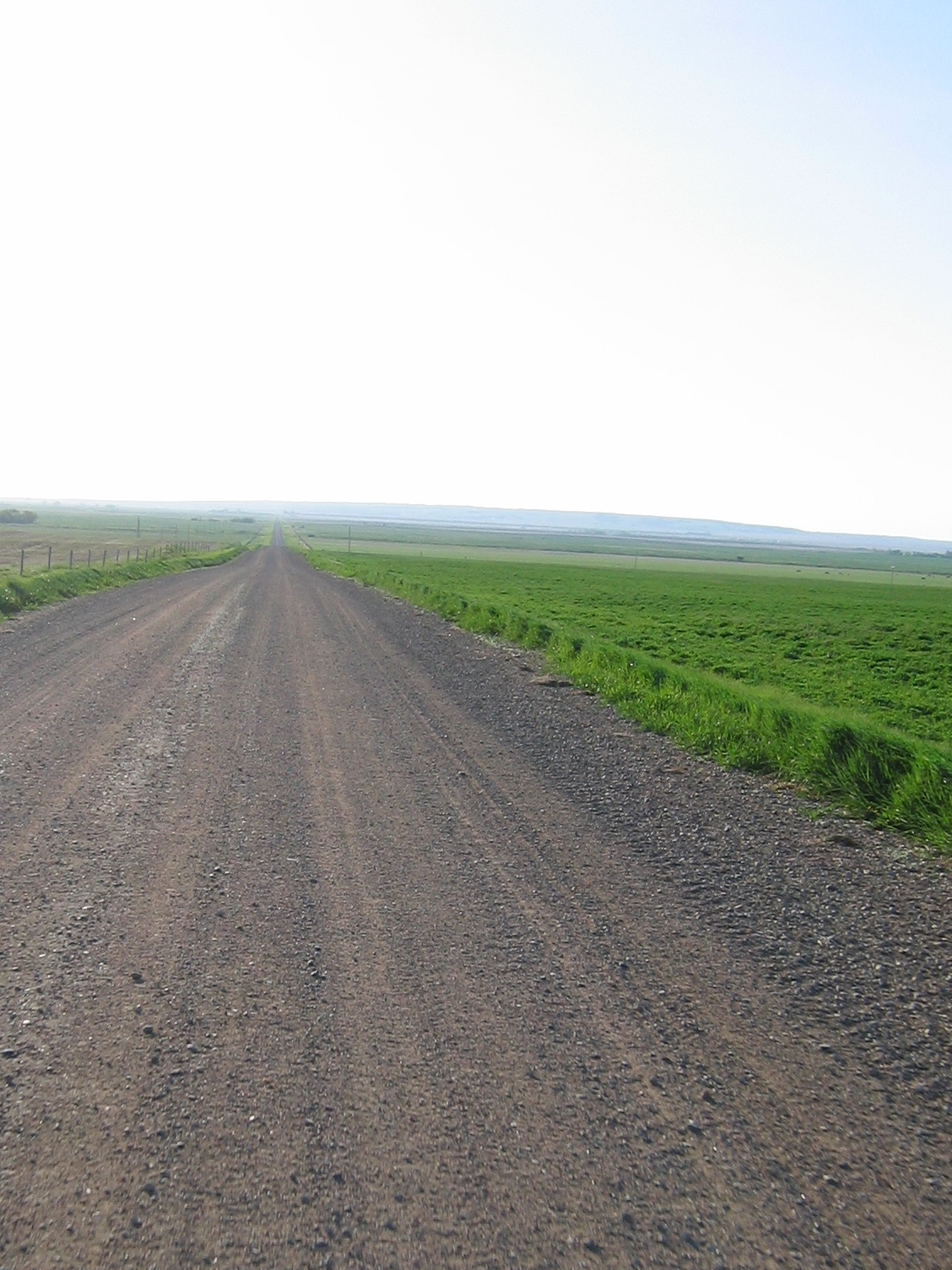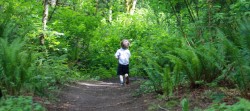I vividly remember the summer after grade ten because it was the first of two long solo bike trips that I completed. The previous summers I had biked with my Dad on the Gulf Islands on the Pacific Coast. We carried a tent and took to campsites for night. So I had all the gear in the garage on the fateful day that I got caught sneaking out well beyond my curfew with friends. My parents were obviously disappointed in my choice and grounded me from those particular friends for a couple of weeks. After I went to my room to sulk, it dawned on me that I didn’t want to admit to my friends that I was grounded for something so minor. At the time, I was embarrassed by my parents traditional approach, so I didn’t tell my friends much about them or the rules that I was supposed to follow.
So once I was grounded my biggest concern was what I would tell my friends when they called to hang out the next day. Alone in my room I came up with a solution.
I headed to the living room and I asked my parents if I could ride my bike 1300 km from Fort St John to Vancouver by myself. Unbelievably, they said yes. And I left the next morning.
I packed a tent, ate in restaurants, averaged 160 kilometers per day and finished a week later. My parents were on their way to visit my relatives in Abbotsford anyway and so I met them there before we came home a couple of weeks later. I no longer was grounded and could hang out with my friends and brag about what I had accomplished on my own. My friends never found out that I had gotten in trouble.
The next year I planned ahead and biked through Banff and Jasper by myself before being picked up by my brother and heading down to Vancouver with him. On both trips I spent close to a week without talking to anybody that I knew and spent most of my time alone. Not many parents would have allowed their teenage son to embark on such an adventure but I am very thankful that mine did because that time spent alone has had a dramatic impact on the rest of my life.
It is in solitude that a person gets to know themselves. They decide what they believe in, what they want out of life, and what is important. By being alone a person can process all the information that they are bombarded with on a daily basis and synthesize what they have been told with what they know to be true from personal experience.
When there is no down time, there can be no genuine personal conviction because a persons thoughts and beliefs remain as whimsical as the information that is flippantly passed through media and mass institutions. On my two bike trips I made some of the most meaningful decisions of my life that still impact my decisions on a daily basis. I never could have made such solid decisions that remain pillars of my belief structure if not for so much time to myself.
As a teacher, I am always heartbroken by the sheer number of students who whimsically go along with the crowd switching between one way of life and another because they don’t really know who they are or what they want out of life. I have witnessed many students tell me in September what they want to accomplish at school that year; be it joining teams, clubs or doing better at their academics, only to backslide from their decision when their peers opt to do something else. I have seen groups of students, who are made up entirely of individual students that I know who want to strive towards excellence in some area of their life, settle for mediocrity because their personal conviction is whimsical and falters in the face of peers. The easier path is opted for on-mass because individual conviction isn’t solidified. This isn’t just a phenomenon of youth; it permeates our entire society.
For a person’s conviction to solidify they need to understand their personal place in the world. Who they are? What they believe about the world? And what they plan to accomplish in life? And what steps they will need to take to accomplish it? And they need to know it on a deeper level then can be determined in a world surrounded by constant stimulus and noise as are the norm with mass media, public education, and a peer orientated life. There is no one right way to a deeper understanding of oneself but there are ways that provide a better chance for an individual to discover themselves. Such as being alone, reading, reflecting and arguing philosophically about life with others and paying attention to your own thoughts as closely as the new ideas that are presented to you.
In university, I was friends with an extremely diligent girl who spent her time memorizing facts for tests, or in busy activities with peers. When it came to studying, she didn’t seek to understand but rather to regurgitate for the test. And when it came to socializing, she conversed incessantly about meaningless topics. She was a loyal friend, who I spent a fair amount of time with, but I never felt that I knew who she was. She went away for an exchange for the third year and when I ran into her again in the fourth year we stopped for a long conversation. It is the only conversation that I remember having with her even though we spent a lot of time together the first two years. She was a different person, quiet and thoughtful, and so I asked her what happened. She said that in her third year she was forced to be alone a lot of the time and she got to know herself for the first time. And “It turns out that I like myself”. No longer was she needy of other people and constant empty noise. She knew what she wanted to get out of university and had completely changed her approach. She stopped memorizing and started to try and understand the course. This made the whole process much easier for her and much less time consuming. She told me that she had taken to reading and had a handful of good friends now who she had proper conversations with about meaningful topics. And although we didn’t really hang out after that, I knew that I could have opened up to her safely at any time if need be. I liked her more after that conversation than I ever had before because it was the first time she was able to be real with me; it was the first time that I had met the real her.
High school is filled with students who don’t know themselves or their place in society. (I could argue that most of the world is filled with people who don’t know themselves but I’ll leave that for some other time). And as a result they tend to drift without conviction.
Some would argue that no teenager around the world knows themselves and their role. I agree to some extent. But it is in the teenage years, that I made my first life impacting decisions about what type of person I wanted to become. I continue to live up to the decisions that I made twenty years ago while alone on my bike.
It is the longest standing decision of my life and would not have been possible without significant time isolated from societal noise. I was able to live up to those decisions in high school when faced with peers who wanted me to lower my new standards. I was able to live up to those decisions through university when surrounded by a culture of no standards whatsoever. As a teacher, I see far too few students in high schools today that are capable of making decisions that they will stand by in the face of peer pressure. I don’t blame the peers. I think it is because the decision maker hasn’t spent enough time alone with their thoughts. They don’t know themselves, or their ambitions. They are bombarded with information and societal noise via school, mass media, and peers, without ample time to synthesize it into their personhood.
I opt to keep my children home from school so that they will have a genuine opportunity for solitude and through solitude they can develop their own convictions that are strong enough to be life altering and steadfast. An opportunity that is very rare in today’s culture and even more rare at public schools.







Great article, I agree with you 100%! I just started homeschooling my little ones and this is what I hope for them. I love meeting teenage homeschool kids, they’re so much more mature than other teens. They seem to know what they want or like and are so confident about it! I know a 13 year old girl who creates entire meals for her family and has created her own recipes for cakes and films and edits videos for youtube of her creations! So amazing!
Thanks Robin– one thing I noticed about your story is that your formative alone time was at night in your tent. When I create intentional “solo” time on my backpacking trips, my participants usually notice the value in being alone and stationary. Many of us are alone for periods but we’re moving (road trip, etc) but I think something special happens when we’re alone and stop moving. Provided that we’re not listening to our iPods or using Facebook.
Once I had the opportunity to sit in one spot, an alpine meadow, for 48 hours. It was challenging to not go anywhere and explore, but it was a priceless opportunity to explore my own identity.
Thanks for the comments, Mattias. I’m fascinated. Solitary stillness. I definitely have good memories of those moments in my past. I rarely take a moment to stop – and be still alone, these days. I suspect it’s just as valuable for adults as youth.
Thank you for expressing why time alone is so important for young people. As a child I spent much of my summers and weekends wandering the woods of Western Massachusetts alone, and it was during those times that I became who I am. While I never spent more than a day or two alone the regularity of it made it an important part of my life. Still to this day my choice for time alone is often heading off by myself somewhere I can be anonymous, if not in nature.
I love that you made solitude part of your self, and your routine (for lack of a better word). I hope I can provide moments like that for my kids as they grow older.
I really enjoyed this article.
Stopping by from the Carnival of Homeschooling 300th Edition.
What a great reminder for taking some quiet alone time without any external input other than nature or own bodies. So rare.